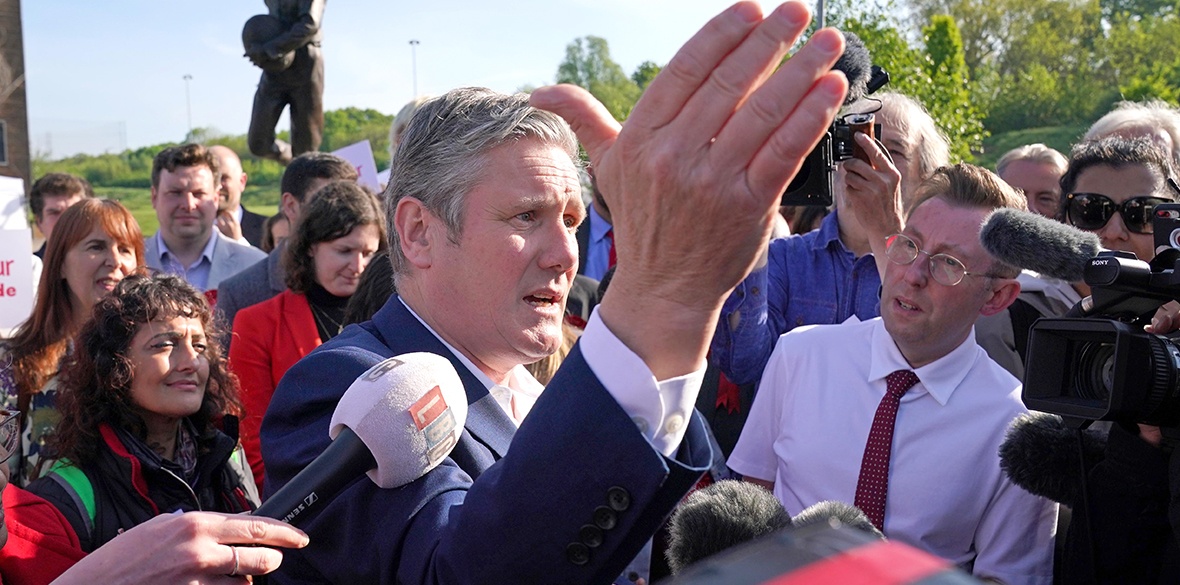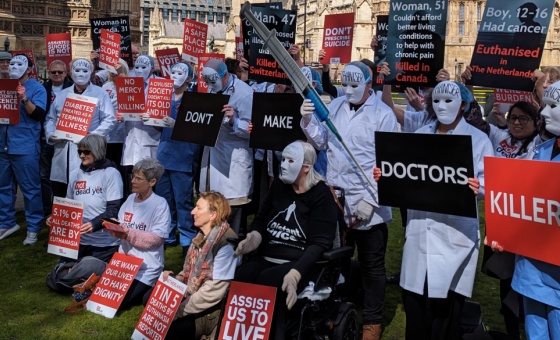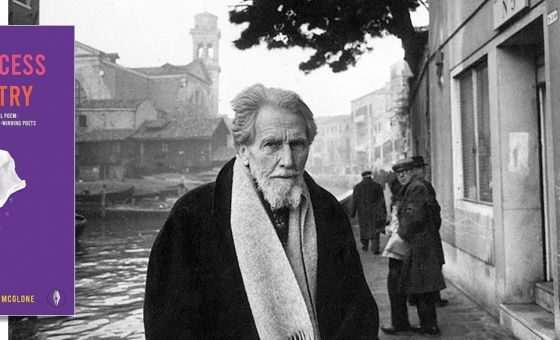This is the last article you can read this month
You can read more article this month
You can read more articles this month
Sorry your limit is up for this month
Reset on:
Please help support the Morning Star by subscribing here
WHILE Tory losses in the local elections were bigger than expected, many millions of electors did not trust Labour with their protest vote against the cost-of-living crisis and “partygate” after Boris Johnson’s disastrous priorities during the Covid epidemic.
The Lib Dems and Greens were the biggest winners, but Labour under Keir Starmer’s lacklustre leadership failed to make headway across large parts of northern England, the Midlands and the south-west and Cornwall. Indeed, the Greens made more gains than Labour in England.
There were two key factors in Labour’s failure in much of England outside London and parts of the south.
First, millions of former Labour supporters in Lancashire, Yorkshire and parts of the Midlands have not forgotten nor forgiven Labour's attempts to dismiss the democratic vote to leave the EU in the 2016 referendum.
Second, Starmer’s purge of the left in the Labour Party effectively sabotaged the party's campaigning capacity, provoking more than 150,000 members — many of them activists — to resign and take their membership dues with them.
The pressure will now intensify for Labour to enter into a formal or informal pact with the Lib Dems, Greens and possibly Plaid Cymru and the SNP at the next general election.
This must be opposed by the wider labour movement and the left.
The Bank of England’s monetary policy committee has warned us that inflation will hit 10 per cent this year, while unemployment rises to around two million between now and the next general election. It has replaced its forecast of continuing growth with one of economic stagnation followed by recession.
Yet just when people may need to borrow more to meet rocketing energy and food prices, at a point in the capitalist economic cycle when the economy needs more demand and industrial investment, the Bank of England has increased the bank rate. This will make borrowing more expensive for households, industry and government.
This approach reflects the central economic and monetary objective of successive British governments since the 1970s, which is to keep inflation low rather than maintain full employment.
An electoral pact would mean that instead of fighting everywhere on a manifesto of bold left policies to protect jobs, incomes and public services, Labour would be invisible in more than 100 constituencies and lumbered with policies straight out of the Lib Dems’ infamous pro-big business, pro-market Orange Book.
Furthermore, this electoral alliance would be a Trojan Horse for pro-EU fanatics to bind Britain to EU single market rules instead of utilising Brexit to abolish VAT, direct private capital investment, support local enterprise and reverse privatisation.
Having consolidated its position on May 5 — although its gains were not much more than Labour’s — the Scottish National Party may step up the pressure for a second referendum on Scottish independence. There is less pressure in Wales, where Plaid Cymru actually lost seats overall while gaining control of three more local councils.
The Scottish Parliament should have the right to initiate a vote on the country’s national future and the result should be respected, contrary to the efforts of the SNP, Labour, the Lib Dems and Plaid Cymru to sabotage the people’s Brexit decision.
However, the Communist Party and other socialists and progressives in Scotland believe that any such referendum should also offer the option of federalism. This should be an option for the peoples of Wales and England too, allowing real power and resources to the nations of Britain while maintaining the maximum possible unity in the struggle against state-monopoly capitalism.
For Labour, the lessons of May 5 must include a halt to the party leadership’s ongoing purge of the left, which has included not only arbitrary expulsions and the exclusion of Jeremy Corbyn at Westminster, but also the wholesale closure of branch and constituency bodies.
The deepening crisis of capitalism in Britain calls for bolder policies from Starmer and his New Labourite coterie: higher wages, pensions and benefits; a wealth tax on the super-rich and higher taxes on corporate super-profits; an end to PFI and privatisation in the NHS and public services; renationalisation of oil, gas, electricity, water, postal services and public transport; and direction of big business capital investment into “left behind” communities and regions in every part of Britain in place of selective, vote-catching and largely illusory “levelling up.”
We know from recent experience how this change of policies might be achieved. It was mass campaigning in workplaces and local communities by trade unions, the People’s Assembly, Stop the War and CND that created the conditions for the “Corbyn surge.”
The TUC demonstration on June 18 must mark the beginning of building a mass protest movement across Britain, one which goes forward and develops a clear economic and political alternative to neoliberalism.
This is also the strongest safeguard against a revival of the organised racists and fascists, who always seize upon growing poverty and mass unemployment to peddle their divisive hatred against bogus scapegoats such as immigrants, asylum-seekers and other black, Jewish and ethnic minority communities in our society.
But next time, the mass movement should also pay more attention to political education — particularly about the realities of imperialism as it functions through the British state, the EU and Nato — as well as to its own organisation at local, regional and national levels.
For its part, Britain’s Communist Party will be refining and developing its strategy over the coming period, building on the excellent work done by our local election candidates and campaigners and by our industrial, international and communications departments.
In the meantime, all genuine supporters of peace must continue to speak out for peace in Ukraine. The former and — we hope — future president of Brazil Lula da Silva was right to blame Nato, the EU and Presidents Biden and Zelensky for their part in creating the conditions that prompted President Putin’s unwarranted and brutal attack on Ukraine.
The problem is not any shortage of weapons for the Kiev regime and its fascist allies now holed up in the Mariupol steelworks.
The Nato powers and their allies in Japan and Australia already outspend Russia by about 20:1 (and China by more than 10:1).
As Lula pointed out, what is needed today is more effort by Western governments to help the UN broker a ceasefire and clear the way to a permanent negotiated settlement that takes account of Russia’s legitimate security concerns. That can only mean no Ukrainian membership of Nato.
His intervention is reminiscent of the role once played by the Non-Aligned Movement (NAM) in challenging Western imperialist expansion and aggression during the first cold war. Now that the Organisation for Security and Co-operation in Europe and the Council of Europe have been deliberately hobbled as non-aligned forums, we need a revived NAM based on countries such as Brazil, South Africa and India as much as ever.











